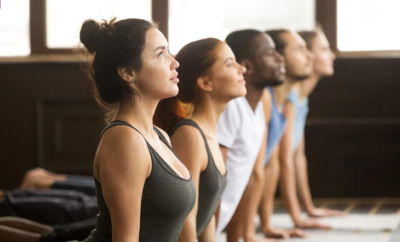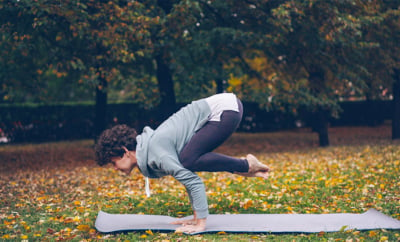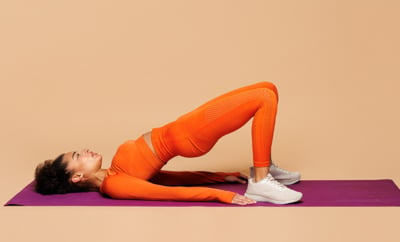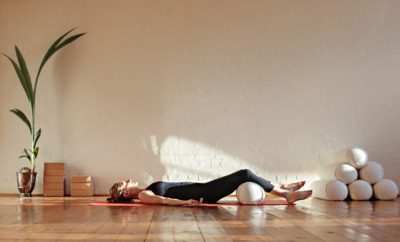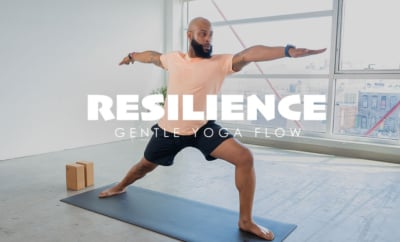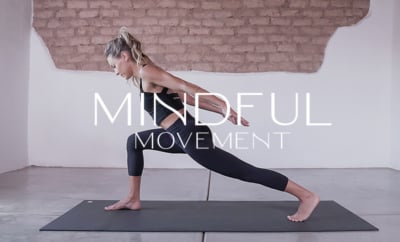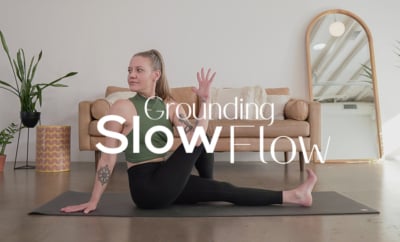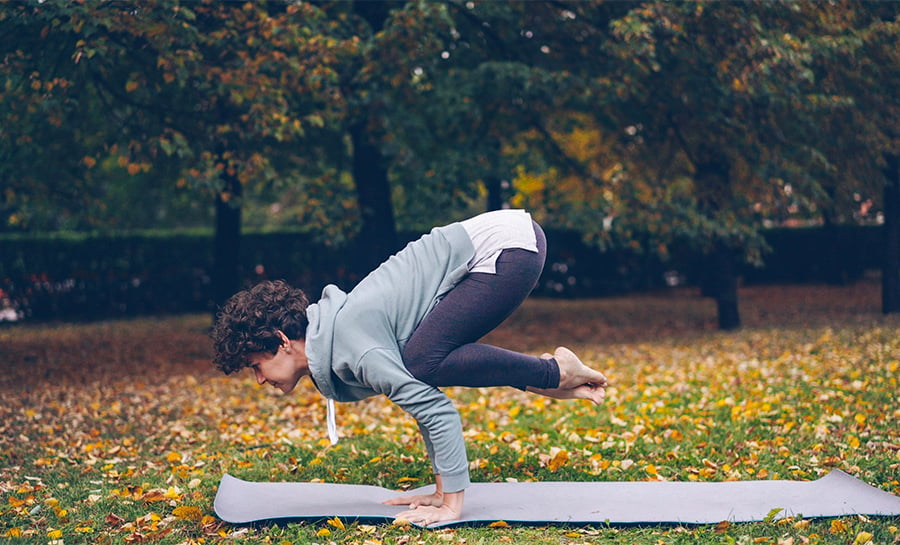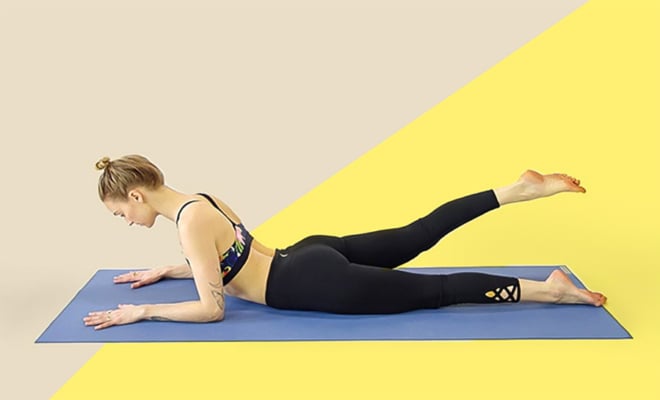Yoga Claims Debunked: What the Science Actually Says About Yoga’s Health Benefits
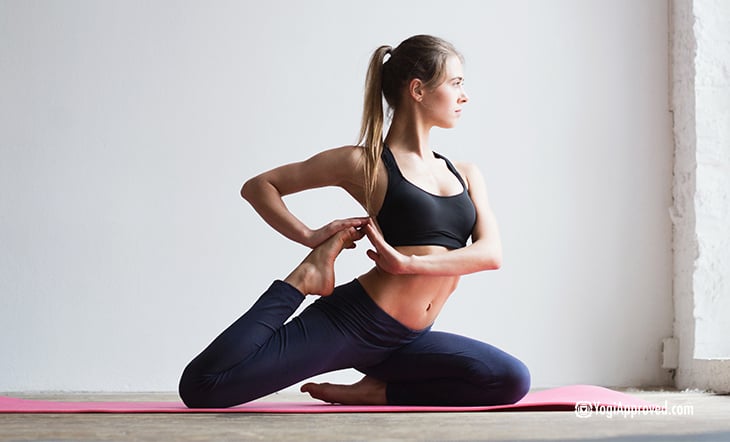
People make a lot of claims about the health benefits of yoga, but do you know which yoga health claims are actually backed up by science? In the era of “fake news,” it can be difficult to determine which claims are true and which are false. We’re here to clear it up for you.
Fortunately, there have been many studies conducted about the claims around the health benefits of yoga. In fact, more than seven hundred scientific trials on yoga and health benefits have been published in medical journals, meaning that the information that you want is out there!
Here Are 4 Yoga Health Claims and the Actual Science Behind Them:
1. Claim: Yoga Reduces Low Back Pain
True! A study funded by the National Center for Complementary and Integrative Health in 2011 found that yoga was more effective for chronic back pain than other exercises and routines recommended from the book The Back Pain Helpbook.
This study was performed on a population of 228 adults who identify as having chronic lower back pain. According to study leader Karen J. Sherman (PhD, MPH), both yoga and general stretching can help to reduce low back pain.
Less use of pain medication lasted at least six months for people in the yoga group and the stretching group, but not The Back Pain Helpbook group.
Another study of 90 people with chronic lower-back pain showed that those who practiced Iyengar yoga, a form of yoga that emphasizes precision in posture and breathing, had reduced pain and less disability after 6 months of practice.
Finally, a study on yoga and back pain performed by British researchers found mixed results on the effectiveness of yoga. They compared a 12-week yoga program with the routine care provided by the National Health Service.
The 156 people in the yoga group reported similar pain levels to the 157 people who received normal treatment. However, it was shown that yoga was more effective at improving back function, meaning that it helped with walking, standing, climbing stairs and other daily back-related problems.
2. Claim: Yoga Improves Asthma
Inconclusive. There is NO substantial evidence to show that yoga improves asthma. In 2011, a review of studies was performed to see if results showed that yoga improves asthma, but there was not enough evidence to draw any conclusions.
3. Claim: Yoga Reduces Anxiety, Depression, Stress and Insomnia
Practicing yoga can reduce anxiety, depression, stress and insomnia.
A German also study indicates that yoga can help those who are “emotionally distressed.”
The study revealed that women who took yoga for three months improved in their perceived amounts of depression, stress, energy and anxiety and the number of complaints of headaches, back pain and poor sleep decreased in comparison to the group of women who did not take yoga.
Yoga can also potentially help with PTSD, and after a study on Australian Vietnam veterans showed that PTSD symptoms dropped from moderate/severe to mild/moderate, the Walter Reed Army Medical Center in Washington, D.C has begun to utilize yoga to help those returning from war.
4. Claim: Yoga Helps to Relieve Arthritis
Inconclusive. In 2011, a review was performed on studies that attempted to find a connection between yoga and arthritis. The results are inconclusive, possibly because there are two main types of arthritis that are very different conditions, and depending on where the arthritis is could change the effectiveness of a treatment such as yoga.
However . . . according to the Johns Hopkins Arthritis Center, these studies on yoga and arthritis are difficult to interpret because of yoga’s psychological benefit.
Yoga may not target the arthritis or arthritis pain directly, but rather can reduce stress and frustration and make working out enjoyable. This can then play a huge role on how someone feels throughout the day in terms of pain.
Bonus! Claim: You Have to Be a Crunchy Granola Person to Be a Yogi
False! Yoga is for everybody and it always will be. Everyone can enjoy all of the wonderful physical and mental benefits of the yoga practice, and you are able to participate in whatever parts of the practice you want.
You don’t have to be vegan, you don’t have to be celibate, you don’t have to be flexible, you don’t have to be a hippie, you don’t have to hate shoes, you don’t have to do anything you don’t want to do to appreciate the yoga practice. This is one yoga health claim we can get down with dog!
Yoga Health Claims: How to Determine If What You’re Reading is Factual
Before we part ways, let’s review a few tips for how to determine if a yoga health claim you read in the future is true or not.
1. Look Into the URL – This Is Clue #1
If you’re reading from a “.gov” or “.edu” site, it is more reliable than reading about yoga on something like Yahoo Answers, where anybody can post their views and opinions and state them as though they are facts.
2. Look Into the Details of the Study
If it is a well-known health institute or school, their results are likely to be more reliable due to following proper procedures for studies. Look for large sample populations in studies, as this makes the results more accurate.
3. Test It for Yourself!
Try out different forms of yoga to see if it helps you with your personal health issues. It may not directly solve your problem, but it may increase your happiness and give you a renewed sense of life despite your health condition.
Have questions, comments, or other insight to share? Please do so in the comments below and keep the conversation going!
All included information is not intended to treat or diagnose. The views expressed are those of the author and should be attributed solely to the author. For medical questions, please consult your healthcare provider.


This Month's Letter
From the Editor
Monthly motivation and food for
thought from our founder.



